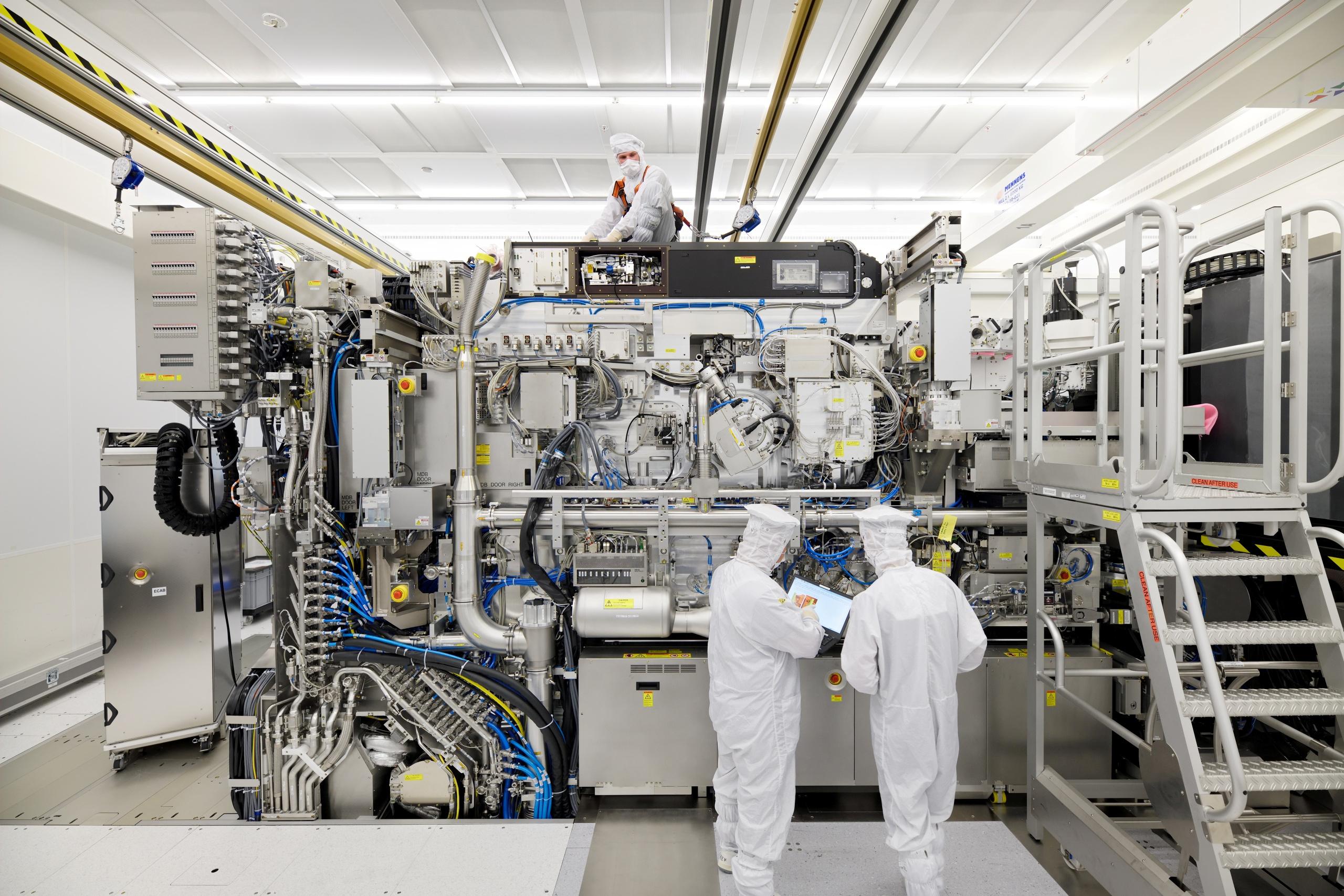

ASML's TWINSCAN NXE:3400B semiconductor lithography tool. Image credit: ASML
The Dutch government has imposed a raft of new restrictions on high-end chipmaking equipment that are expected to mostly affect Chinese customers, ahead of new export rules expected from the US as tech friction between the US and China shows no sign of diminishing.
Under the new Dutch rules, from 1 September high-end chipmaking machines from the likes of ASML that could be used for “advanced military applications” will require a licence for export abroad, the Dutch government said.
Dutch trade minister Liesje Schreinemacher called the rules “country neutral” but in practice manufacturers expect Chinese firms to be amongst the few who are refused licences.
“We have taken this step in the interest of our national security,” Schreinemacher said on Friday in introducing the plans.
China’s foreign ministry called the restrictions a “technological blockade against China” and said they “seriously undermine market rules and the international trade order”.
The ministry said it would follow developments and “firmly defend our lawful rights and interests”.
The restrictions follow broad US export sanctions introduced last October affecting advanced microprocessors as well as equipment from US firms such as Lam Research and Applied Materials that could be used to manufacture such chips.
The US placed allies such as Japan and the Netherlands under heavy pressure to follow suit, as failure to do so would mean Chinese companies could obtain what they needed from non-US sources, defeating the purpose of the restrictions while placing US companies at a competitive disadvantage.
Japan recently introduced similar export controls on machines capable of producing chips of 45nm and smaller.
The Netherlands in March introduced a first round of controls and said at the time that more were on the way.
ASML said the new controls would cover three of ASML’s four systems for immersion DUV lithography, which are its second most advanced after its extreme ultraviolet or EUV systems, which have never been shipped to China.
Analyst firm Jeffries said the rules were broadly in line with expectations and that most Chinese firms had already converted their orders to the ASML machine still permitted to ship to China.
But that system may be hit by further controls from the US expected in late July which are expected to require export licences for products that contain even a small proportion of US parts, as do ASML’s machines.
The upcoming rules are likely to bar exports to half a dozen Chinese facilities, including a fabrication plant operated by China’s largest chipmaker SMIC, Reuters reported, citing unnamed sources.
British retailer Marks & Spencer apologises after it struggles to recover from cyberattack this week,…
Apple to pivot manufacturing of iPhones for US away from China and to India, after…
Boom time. Amid ongoing cost cutting and potential break-up threat, Alphabet profits surge as AI…
AI pioneer OpenAI is interested if Google is forced to sell of its Chrome browser…
Several units within Google notified remote workers jobs will be in jeopardy if they don't…
Leading holders of Trump meme coin receive invitation to private gala dinner with US President,…